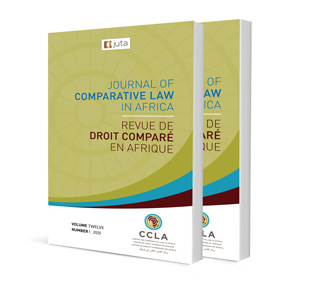Green diplomacy in action: navigating international law for Kenya’s sustainable aviation fuel transition

Green diplomacy in action: navigating international law for Kenya’s sustainable aviation fuel transition
Authors: Irene Maithya, William Kiema
ISSN: 2521-2605
Affiliations: Bachelor of Laws (Moi University, Kenya), Master of Laws (University of Pretoria, South Africa), currently a Doctor of Laws (LLD) Candidate at Strathmore University, Kenya. Advocate of the High Court of Kenya and Lecturer in Law at Moi University, Kenya; Bachelor of Laws (University of Nairobi, Kenya), Master of Laws (University of Cape Town, South Africa), Doctorate in Air Law (University of Cape Town). Advocate of the High Court of Kenya
Source: Journal of Comparative Law in Africa, Volume 12 Issue 2, p. 140–169
https://doi.org/10.47348/JCLA/v12/i2a5
Abstract
The aviation industry’s significant carbon footprint necessitates the urgent adoption of sustainable practices. Kenya’s sustainable aviation fuel (SAF) initiatives emerge as a pioneering model within this context, demonstrating a blend of environmental innovation and strategic green diplomacy. This paper analyses Kenya’s strategic engagement with the International Civil Aviation Organization’s (ICAO) Carbon Offsetting and Reduction Scheme for International Aviation (CORSIA) mechanism and bilateral partnerships to overcome the financial and technical barriers associated with the deployment of sustainable aviation fuel (SAF). Unlike most previous studies that have focused on transitions in the Global North, the current paper focuses on revealing how Kenya employs multilateral platforms and approaches to overcome barriers and negotiate financial and technological support suitable for the African context. The study argues that Kenya adopts a developmental green diplomacy approach, allowing itself to balance its international commitments with industrialisation agendas through strategies such as coalition building with other nations from the Global South in ICAO negotiations, aligning SAF policies with regional frameworks, and creating investment incentives through bilateral air service agreements. The paper demonstrates how Kenya is reshaping the global aviation climate even though it is excluded from the Paris Agreement’s direct mandates.